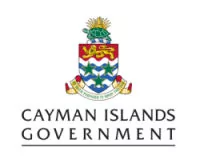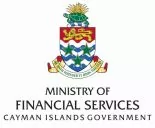Minister of Financial Services Wayne Panton encouraged the public to notice the critical errors made by Oxfam in developing a list of 'tax havens' for their 'Tax Battles: The Dangerous Global Race to the Bottom on Corporate Tax' report.
'Once you've read the report – and particularly the methodology – Government believes that the public will understand that certain organisations' continued efforts to exploit misinformed public opinion, as part of an agenda to influence the public policy of G20 countries, is unhelpful at best', he said. 'Indeed, it may be detrimental to the overall shared goal of combating criminal behaviour and addressing income inequality'.
Oxfam's overriding error, he said, is their failure to differentiate between capital flows and profit shifting.
'In order to engage in profit shifting, a country must attract significant multinational corporations, or MNCs. Cayman does not have this type of business. We do, however, receive capital flows that are used to the benefit of other jurisdictions, via investment projects', Minister Panton said.
He also noted that:
- The Cayman Islands has never had a direct tax system, choosing instead an indirect tax system that adequately meets the need of its population. There is, therefore, no 'race to the bottom' and no tax incentives system designed to target non-resident individuals or legal entities.
- Cayman has adopted and introduced a number of transparency and exchange of information mechanisms, including all three of the OECD criteria listed by Oxfam as important.
- For more than a decade, Cayman has
required the collection, updating and maintenance of information on
beneficial owners of the legal entities in the jurisdiction. This
information has been exchanged with tax and law enforcement
authorities through the various exchange mechanisms in
effect.
'Oxfam's insistence on public disclosure of beneficial ownership information as part of this criteria is disingenuous as it conveniently ignores valid concerns regarding human rights and the fact that the majority of countries do not have public registers of beneficial ownership information', Minister Panton said. - The Cayman Islands supports the BEPS inclusive framework, and country-by-country reporting in particular. Minister Panton said Cayman already has begun the work to consider the relevant aspects of the initiative for local adoption next year.
'With our demonstrable history of upholding international standards and engaging with foreign authorities on anti-tax evasion measures and against other serious crimes, it is wholly inaccurate for Oxfam to include Cayman on its "tax haven" list', he said.
'Rather, examining the Oxfam definition of a tax haven and the methodology that they have chosen exposes the flaws in their reporting'.
The content of this article is intended to provide a general guide to the subject matter. Specialist advice should be sought about your specific circumstances.

